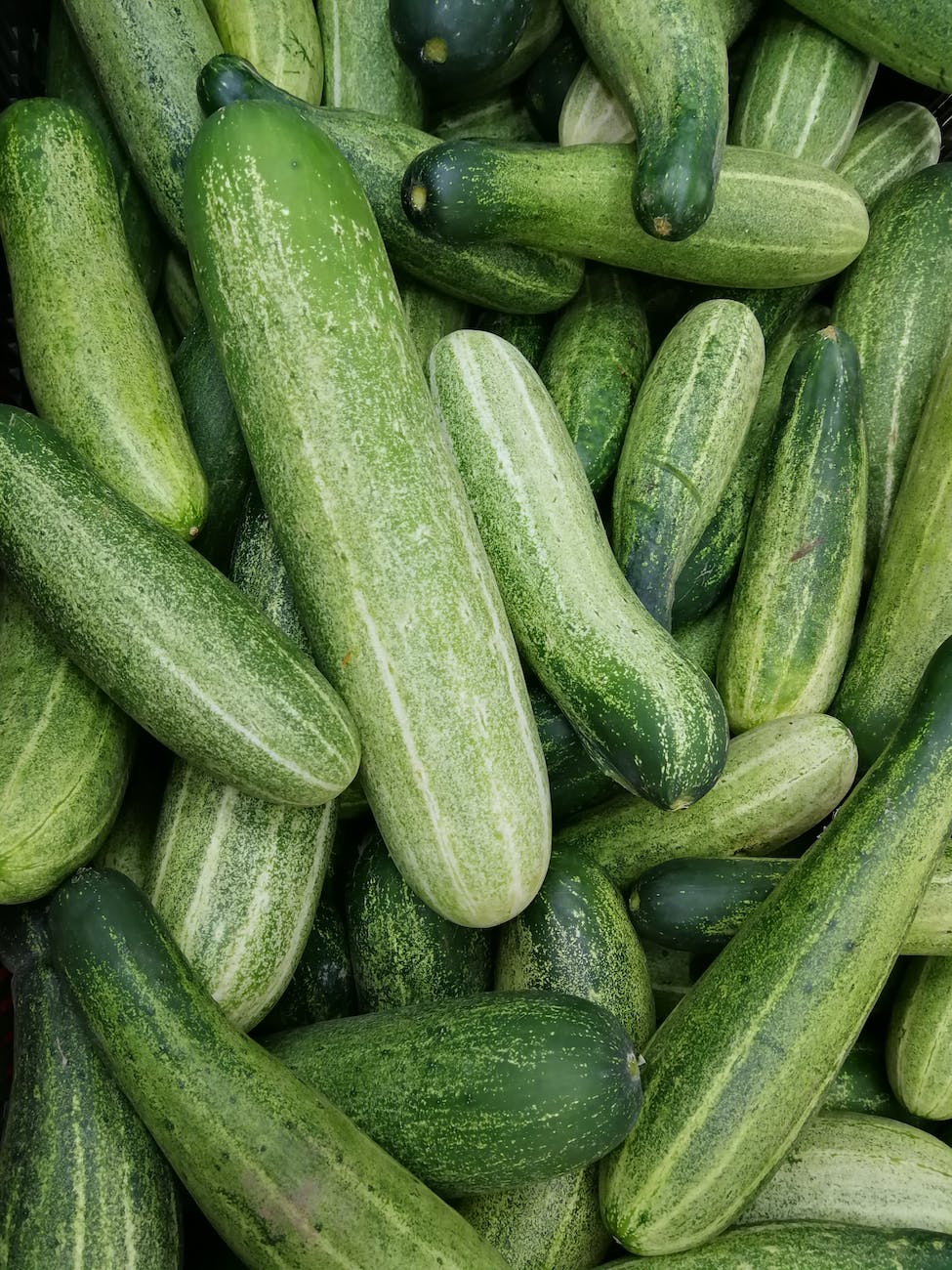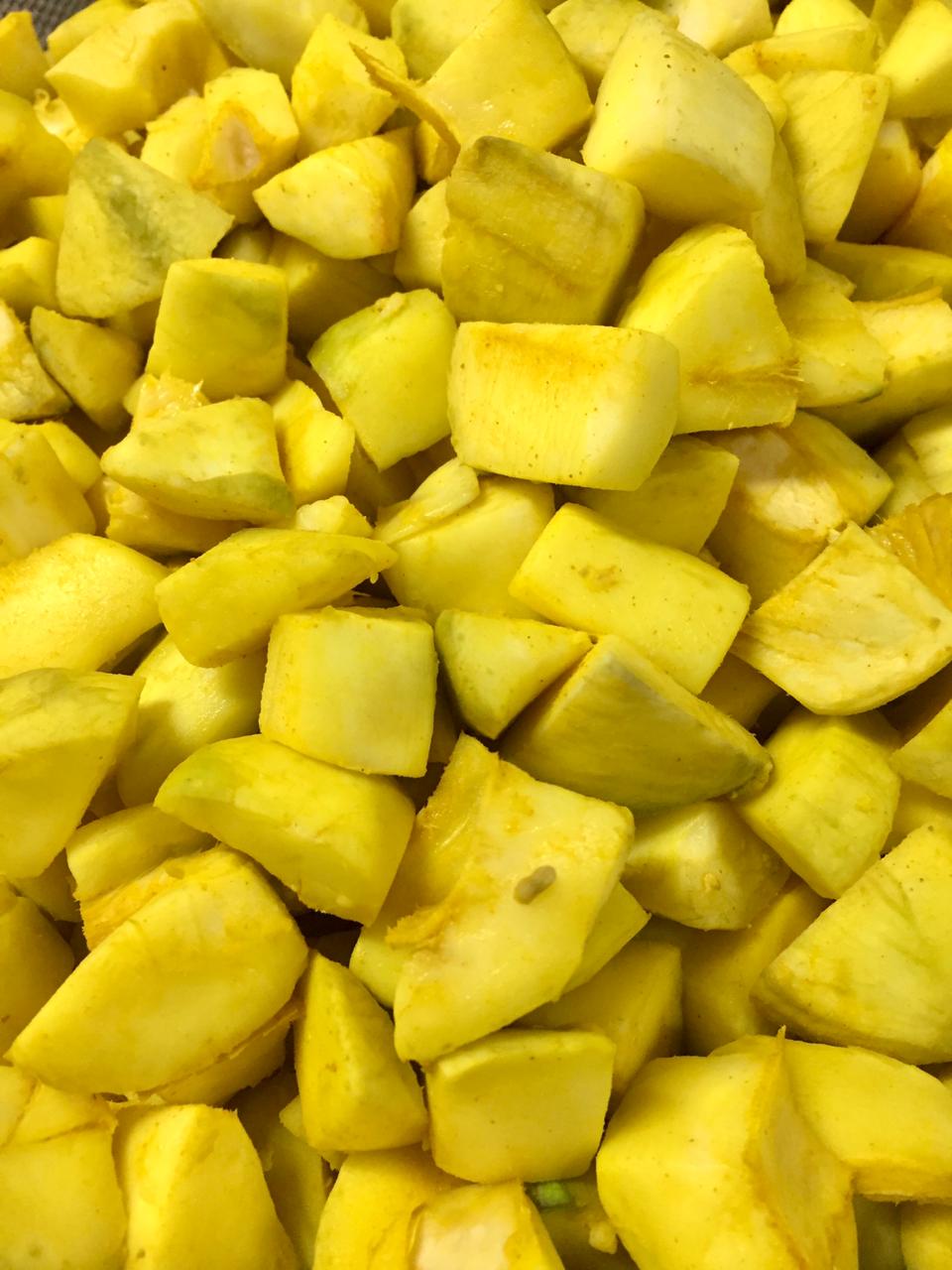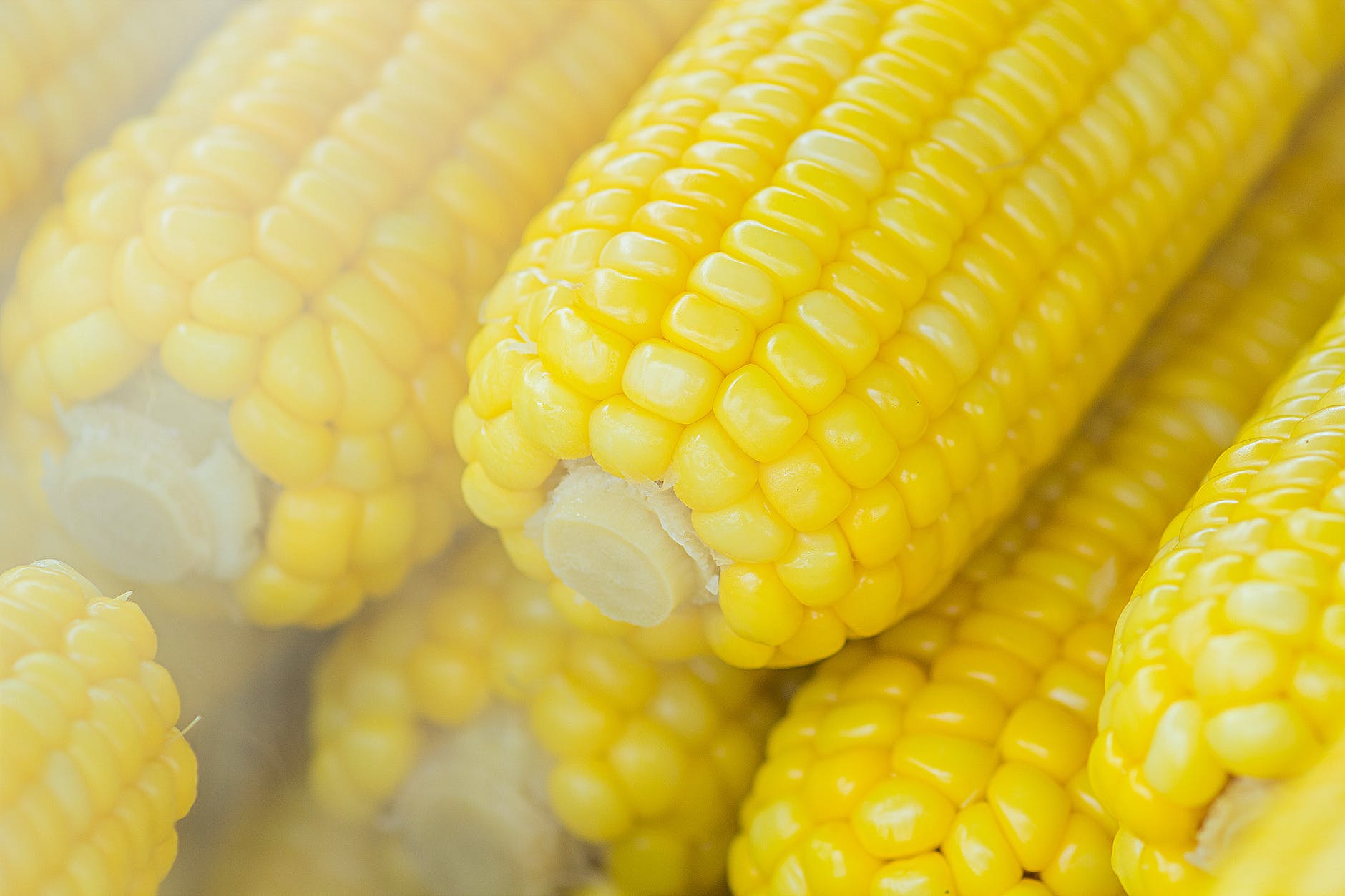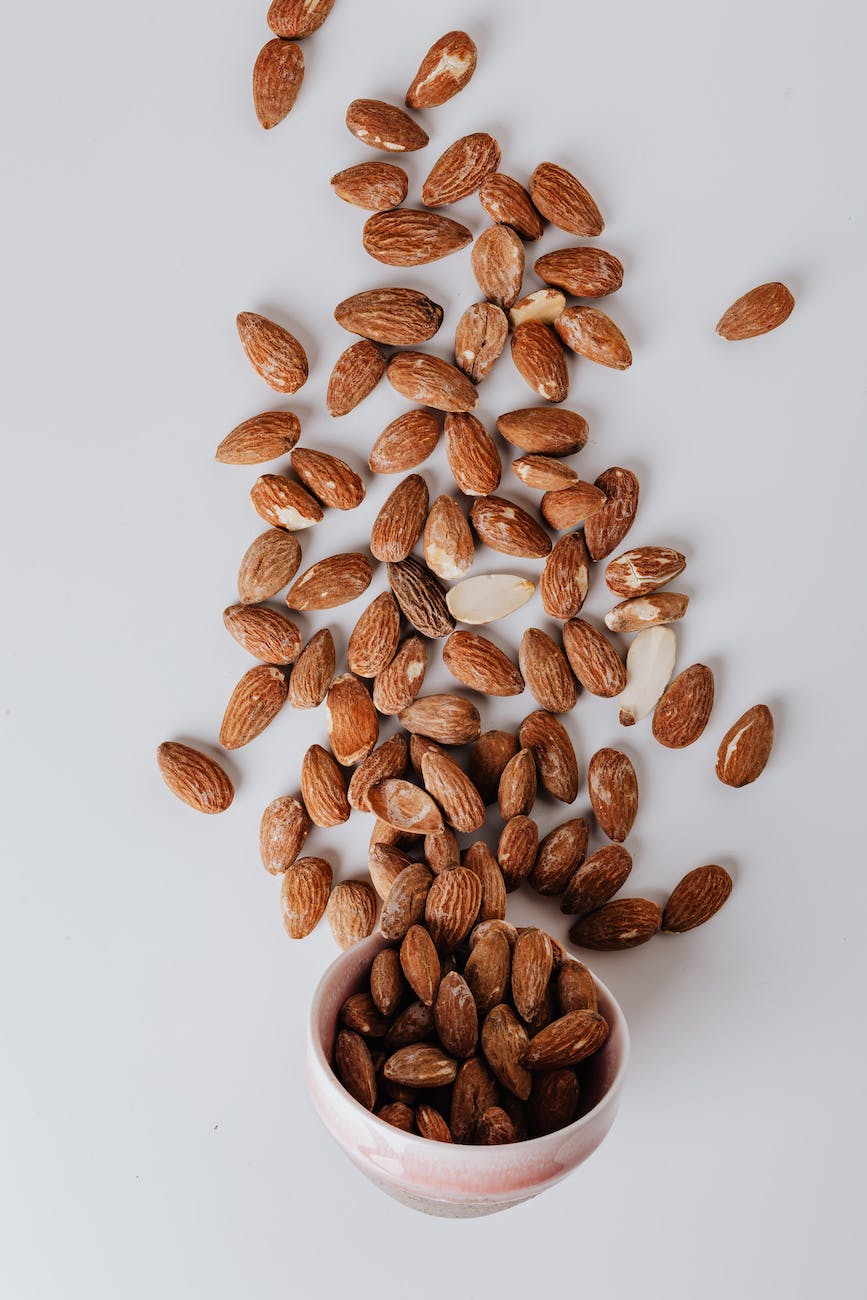
Cucumbers, a staple in many salads, are not just a refreshing addition to your diet but also a powerhouse of nutrition. This versatile vegetable is packed with a variety of essential vitamins and minerals that contribute to overall health. Let’s dive into the world of cucumbers and explore their nutritional benefits.
Cucumber Nutrition: A Closer Look 🧐
Cucumbers are low in calories but high in many important vitamins and minerals. An 11-ounce (300-gram) unpeeled, raw cucumber contains the following:
- Calories: 45
- Total fat: 0 grams
- Carbs: 11 grams
- Protein: 2 grams
- Fiber: 2 grams
- Vitamin C: 14% of the recommended daily value (DV)
- Vitamin K: 62% of the DV
- Magnesium: 10% of the DV
- Potassium: 13% of the DV
These figures are impressive, considering that cucumbers are 95% water. The high water content makes them a perfect snack for those looking to lose weight. Plus, they are a good source of potassium and vitamins K and C.
Weight Loss and Cucumbers: A Winning Combination 🏆
Cucumbers can be a great addition to your weight loss diet. They are low in calories and high in water content, which can help you feel full and satisfied without a lot of calories. Here are some ways cucumbers can aid in weight loss:
- Low in Calories: A whole cucumber has just 45 calories. This makes it a perfect snack for those who are calorie-conscious.
- High in Water: Cucumbers are made up of about 95% water. Eating foods with high water content can help you stay hydrated and feel full, which can reduce overall calorie intake.
- Rich in Fiber: Cucumbers contain a good amount of fiber, especially in the skin. Fiber can help increase feelings of fullness and reduce hunger pangs.
- Versatile: Cucumbers are versatile and can be included in a variety of dishes. Add them to salads, sandwiches, or enjoy them as a crunchy snack with hummus.
5 Practical Ways to Incorporate Cucumbers in Your Diet for Weight Loss
- Cucumber Breakfast: Start your day with a healthy and filling breakfast. You can have 2 eggs with a side of cucumbers and herbs. This will not only keep you full but also provide you with essential nutrients to kickstart your day. 🍳🥒
- Cucumber Snacks: Cucumbers can be a perfect snack for those mid-meal hunger pangs. You can have 2 cucumbers as a snack. They are low in calories and high in water content, which can help you feel full and satisfied without adding many calories. 🥒🥒
- Cucumber Salad for Lunch: For lunch, you can prepare a cucumber salad with lemon juice and Greek yogurt. This salad is refreshing, nutritious, and low in calories. The Greek yogurt adds a good amount of protein to your meal, which is beneficial for weight loss. 🥗
- Cucumber with Dinner: For dinner, you can have roasted chicken and cucumbers with a side of brown rice. This meal is balanced with protein, carbs, and fiber, which are essential for weight loss. 🍗🥒🍚
- Cucumber in Salads and Other Dishes: Apart from these, you can also incorporate cucumbers in your salads, sandwiches, and other dishes. They add a nice crunch and freshness to your meals. Plus, they are versatile and can be paired with various other healthy ingredients. 🥗🥪
Remember, while cucumbers can aid in weight loss, they should be incorporated as part of a balanced diet. It’s also important to pair it with regular physical activity for optimal weight loss results. 🏋️♀️🚴♀️
Cucumbers and Skin Health: A Natural Beauty Secret 💁♀️
Cucumbers are not just beneficial for your internal health, but they also offer benefits for your skin. They are often used in a variety of beauty products and treatments due to their hydrating and soothing properties. Here’s how cucumbers can contribute to skin health:
- Hydration: Cucumbers have a high water content, which can help keep your skin hydrated—a key factor for healthy, glowing skin.
- Soothing Effect: Cucumbers have a cooling effect that can soothe irritated skin and reduce swelling. That’s why cucumber slices are often used as a remedy for puffy eyes!
- Rich in Antioxidants: Cucumbers are rich in antioxidants, which can help protect your skin from environmental damage and slow down the aging process.
FAQs About Cucumbers 🙋♂️
1. 🤔 How many calories are in cucumber slices?
Cucumber is a low-calorie food. A medium-sized cucumber has approximately 45 calories. However, the calorie count can vary based on the size of the cucumber and how it’s prepared.
2. 🍽️ How can I include cucumbers in my diet for weight loss?
Cucumbers can be included in your diet in various ways. You can eat them raw, add them to salads, sandwiches, or even blend them into a refreshing smoothie. They can also be used in cooking and baking.
3. 🥒 Are cucumbers good for weight loss?
Yes, cucumbers are good for weight loss. They are low in calories and high in water content, which can help you feel full and satisfied without adding many calories.
4. 🧐 What are the nutritional benefits of cucumbers?
Cucumbers are rich in vitamins and minerals, including vitamin K, vitamin C, magnesium, and potassium. They also contain antioxidants, which can help protect your body from damage by harmful free radicals.
5. 🌙 Can I eat cucumbers at night for weight loss?
Yes, cucumbers can be a healthy and satisfying snack to have at night. They are low in calories and high in water content, which can help you feel full and prevent late-night snacking.
6. 🥗 What are some practical ways to eat cucumbers for weight loss?
You can start your day with a cucumber breakfast, snack on cucumbers during the day, prepare a cucumber salad for lunch, include cucumbers with your dinner, and incorporate cucumbers in salads and other dishes.
7. 🍹 Can I include cucumbers in my smoothies for weight loss?
Absolutely! Cucumbers can add a refreshing taste to your smoothies without adding many calories. Plus, they blend well with other fruits and vegetables.
8. 🥪 Can I add cucumbers to my sandwiches for weight loss?
Yes, adding cucumbers to your sandwiches can make them more filling without adding many calories. Plus, they add a nice crunch to your sandwich.
9. 🍚 Can I pair cucumbers with other foods for weight loss?
Yes, cucumbers can be paired with a variety of foods like chicken, eggs, and brown rice for a balanced meal that can aid in weight loss.
10. 🩺 Should I consult a healthcare provider before including cucumbers in my diet for weight loss?
Yes, it’s always important to consult with a healthcare provider or a registered dietitian before making any major changes to your diet.
Remember, while cucumbers can aid in weight loss, they should be incorporated as part of a balanced diet. It’s also important to pair it with regular physical activity for optimal weight loss results. 🏋️♀️🚴♀️
In conclusion, cucumbers are a refreshing, nutritious, and versatile addition to any diet. Whether you’re looking to lose weight, improve your skin health, or simply add more nutrients to your diet, cucumbers are a great choice. So, next time you’re at the grocery store, don’t forget to pick up some cucumbers! 🥒💚
Tags: Cucumber, Nutrition, Weight Loss, Skin Health, Vitamins, Hydration, Low-Calorie, High Fiber, Antioxidants, Diet.













